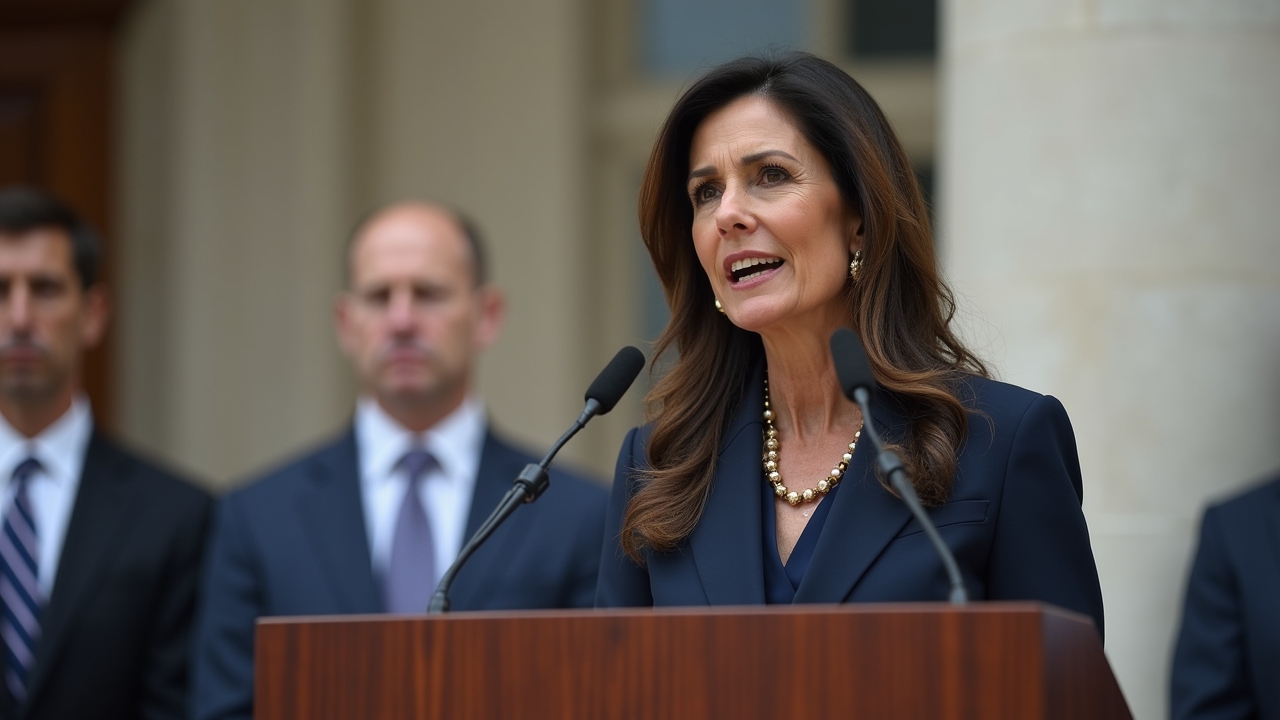PROTECT YOUR DNA WITH QUANTUM TECHNOLOGY
Orgo-Life the new way to the future Advertising by AdpathwayAnalysis of the Government Shutdown Stalemate and Party Dynamics
The current standoff over government funding reflects a deep ideological divide between Republicans and Democrats, as emphasized by Speaker of the House Mike Johnson’s recent comments. As the shutdown drags into its third week, Johnson’s criticism of Democratic leadership highlights what he perceives as disarray within their ranks. He stated, “You’ve got AOC calling for her own negotiations on live TV,” pointing to public disagreements among Democrats and their struggle to present a unified front.
Johnson’s remarks underscore the GOP’s perspective that Democrats are prolonging the shutdown by prioritizing healthcare provisions over immediate funding measures. Central to the dispute is the extension of Affordable Care Act (ACA) subsidies, which Democrats argue are essential for preventing significant premium hikes for millions of Americans. Republicans, however, insist that such negotiations should not impede basic government operations. The call for a “clean” funding bill reflects a broader Republican strategy to maintain a focus on core government functionality while sidelining more contentious policy debates, framing the issue as one of responsibility and pragmatism.
The GOP’s stance is further reinforced by the actions of the White House, which has begun mass layoffs as a tactic in the budget negotiation standoff. OMB Director Russ Vought’s defense of these layoffs as necessary due to Democratic obstruction reveals a stark use of government resources as leverage in political negotiations. This tactic has drawn scrutiny and led to legal challenges, illustrating the complex ramifications of the shutdown—not only for politicians but also for thousands of federal employees facing uncertainty.
As the crisis continues, some fractures within the Democratic Party are becoming apparent. Moderate Democrats are increasingly willing to break ranks, as evidenced by a small number voting in favor of GOP proposals to reopen the government. This internal division raises questions about leadership coherence and strategy effectiveness in navigating the current landscape. While figures like Senators Bernie Sanders and Alexandria Ocasio-Cortez emphasize the moral imperative of securing healthcare funding, others caution against the potential fallout of a prolonged shutdown.
Senate Judiciary Committee Chair Dick Durbin acknowledged the tensions among Democratic members, fostering speculation about the party’s ability to present coherent proposals. The absence of new frameworks for compromise from key leaders like Hakeem Jeffries and Chuck Schumer adds to the perception of stagnation, further complicating negotiations. The lack of formal session in the House for over 30 days signals a severe breakdown in legislative functionality, raising concerns about accountability to constituents, many of whom are facing economic hardships due to the ongoing crisis.
Republicans, meanwhile, remain united in their messaging, framing the Democrats as unwilling to negotiate responsibly. Vice President J.D. Vance’s forewarning about “painful” cuts highlights the stakes involved. Such statements could galvanize public attention on the consequences of the stalemate, which many view as a political failure rather than a necessary stand on principle. The rhetoric among GOP leadership is firmly positioned against negotiating under perceived duress, with John Thune explicitly refusing to engage further without clear resolutions to the funding impasse.
Democrats have countered by accusing the GOP of using the shutdown as a cover to cut vital programs. Senator Mark Kelly’s assertion that “Mike Johnson and John Thune don’t do much without Donald Trump telling them what to do” reflects a broader Democratic narrative that positions the Republican Party as subservient to its leadership. The underlying dynamics hint at a struggle for power influenced by party loyalties and the looming threats posed by public dissatisfaction with the present government dysfunction.
As the deadline for ACA open enrollment approaches on November 1, the pressure mounts for both parties to seek resolution. The situation is critical, not only for the millions who rely on healthcare subsidies but also for the long-term political capital at stake. Johnson’s concluding remarks, “The American people are waiting,” resonate with a larger public sentiment growing weary of political gamesmanship. Despite the evident issue, both sides seem entrenched, unwilling to compromise for the sake of governance.
The path ahead remains uncertain, marked by heightened tensions and diverging priorities. With constituents on the sidelines feeling the effects of the standoff, the next moves by both parties could very well define not only the immediate future of government operations, but also the political landscape for years to come.
"*" indicates required fields


 10 hours ago
5
10 hours ago
5


















.jpg)






 English (US) ·
English (US) ·  French (CA) ·
French (CA) ·